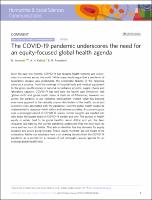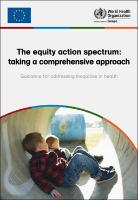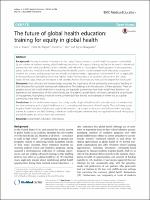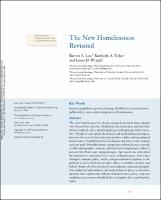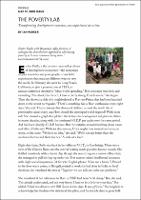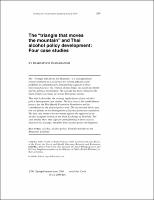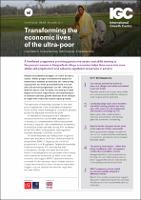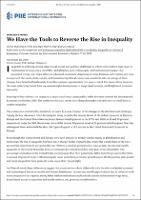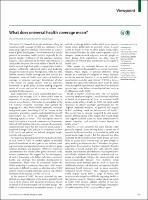Browsing 1.02.02 Health in All Policies by Title
Now showing items 43-51 of 51
-
The COVID-19 pandemic underscores the need for an equity-focused global health agenda
(2021-12)
Over the past few months, COVID-19 has ravaged health systems and economies in countries across the world. While many would argue that a pandemic of respiratory disease was predictable, the systematic failures of the response came as a surprise. From the shortage of hospital beds and medical equipment to the gross insufficiencies in national surveillance systems, supply chains and laboratory capacity, COVID-19 has laid bare the health care limitations that ‘global north’ and ‘global south’ share. A stark set of differences, however, run across ... -
The equity action spectrum: taking a comprehensive approach : guidance for addressing inequities in health
(World Health Organization, Regional Office for Europe, 2014)
While population health indicators have improved across Europe overall, that improvement has not been experienced equally everywhere, or by all. This is one of a series of policy briefs that describe practical actions to address health inequities, especially in relation to tobacco, alcohol, obesity and injury, the priority public health challenges facing Europe. It offers policy-makers and public health professionals the tools and guidance to implement the Health 2020 vision – the new health policy framework for Europe developed by WHO/Europe ... -
The future of global health education: training for equity in global health
(BMC Medical Education, 2016)
Background: Among academic institutions in the United States, interest in global health has grown substantially: by the number of students seeking global health opportunities at all stages of training, and by the increase in institutional partnerships and newly established centers, institutes, and initiatives to house global health programs at undergraduate, public health and medical schools. Witnessing this remarkable growth should compel health educators to question whether the training and guidance that we provide to students today is appropriate, ... -
The New Homelessness Revisited
(Annual Review of Sociology, 2010)
The new homelessness has drawn sustained attention from scholars over the past three decades. Definitional inconsistencies and data limitations rendered early work during this period largely speculative in nature. Thanks to conceptual, theoretical, and methodological progress, however, the research literature now provides a fuller understanding of homelessness. Contributions by sociologists and other social scientists since the mid-1990s differentiate among types of homelessness, provide credible demographic estimates, and show how being homeless ... -
The “Triangle That Moves the Mountain” and Thai Alcohol Policy Development: Four Case Studies
(Contemporary Drug Problems, 2009)
The “Triangle that Moves the Mountain” is a conceptualized strategy initiated as a social tool for solving difficult social problems, by simultaneously strengthening capacity in three interrelated sectors: (1) creation of knowledge; (2) social movement; and (3) political involvement. The concept has been claimed as the basis of many successes in various Thai policy arenas. This article describes the strategy implications of four alcohol policy development case studies. The first case is the establishment process for the Thai Health Promotion ... -
Transforming the economic lives of the ultra-poor
(International Growth Centre, 2015)
Despite considerable progress in recent decades, nearly 1 billion people worldwide live below the international extreme poverty line of $1.90 per day. A group that has been particularly hard to reach with anti-poverty programmes are the ‘ultra-poor’. With low assets and few skills, the ultra-poor work largely in insecure wage labour, do not participate in modern economic growth and have been difficult to target with credit and human capital policies. -
We Have the Tools to Reverse the Rise in Inequality
(PIIE Peterson Institute for International Economics, 2019-11) -
What does universal health coverage mean?
(The Lancet, 2014)

